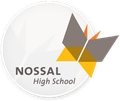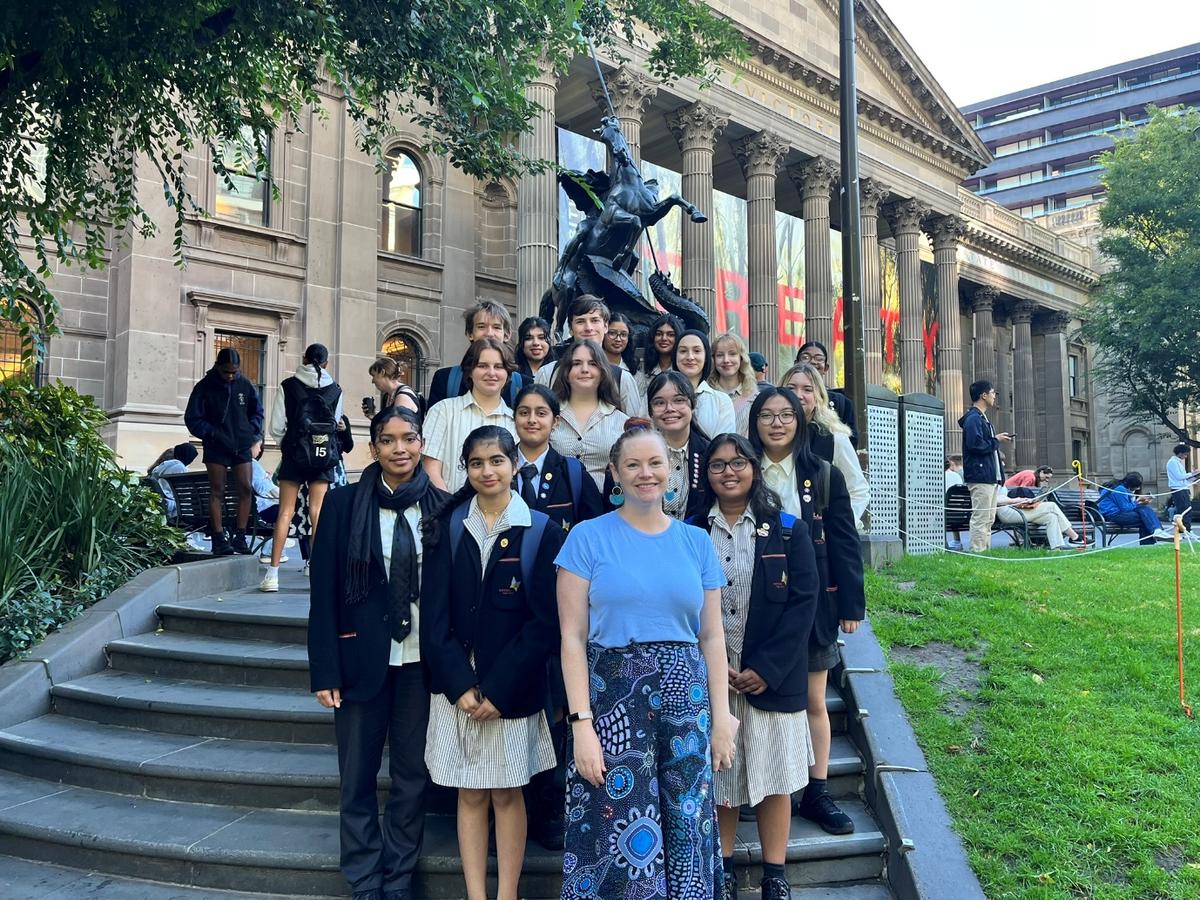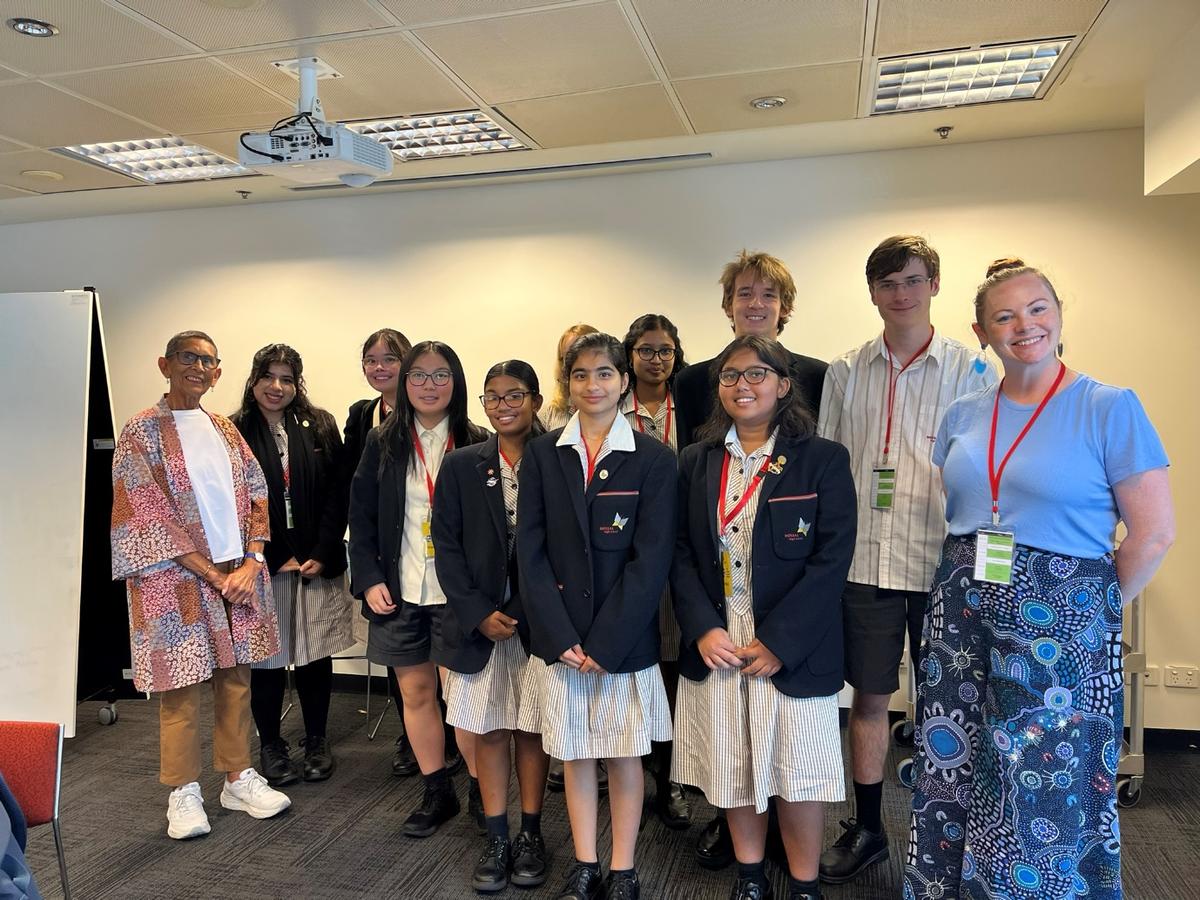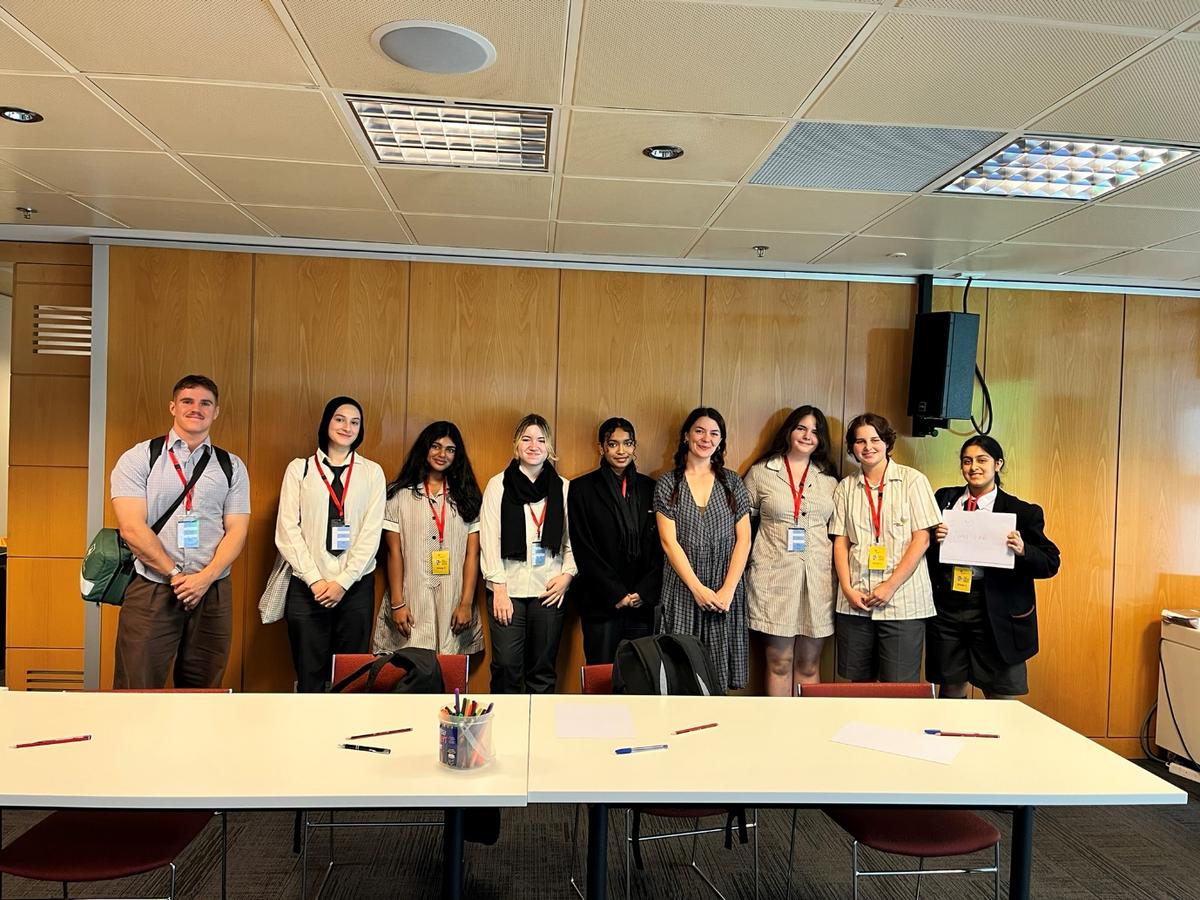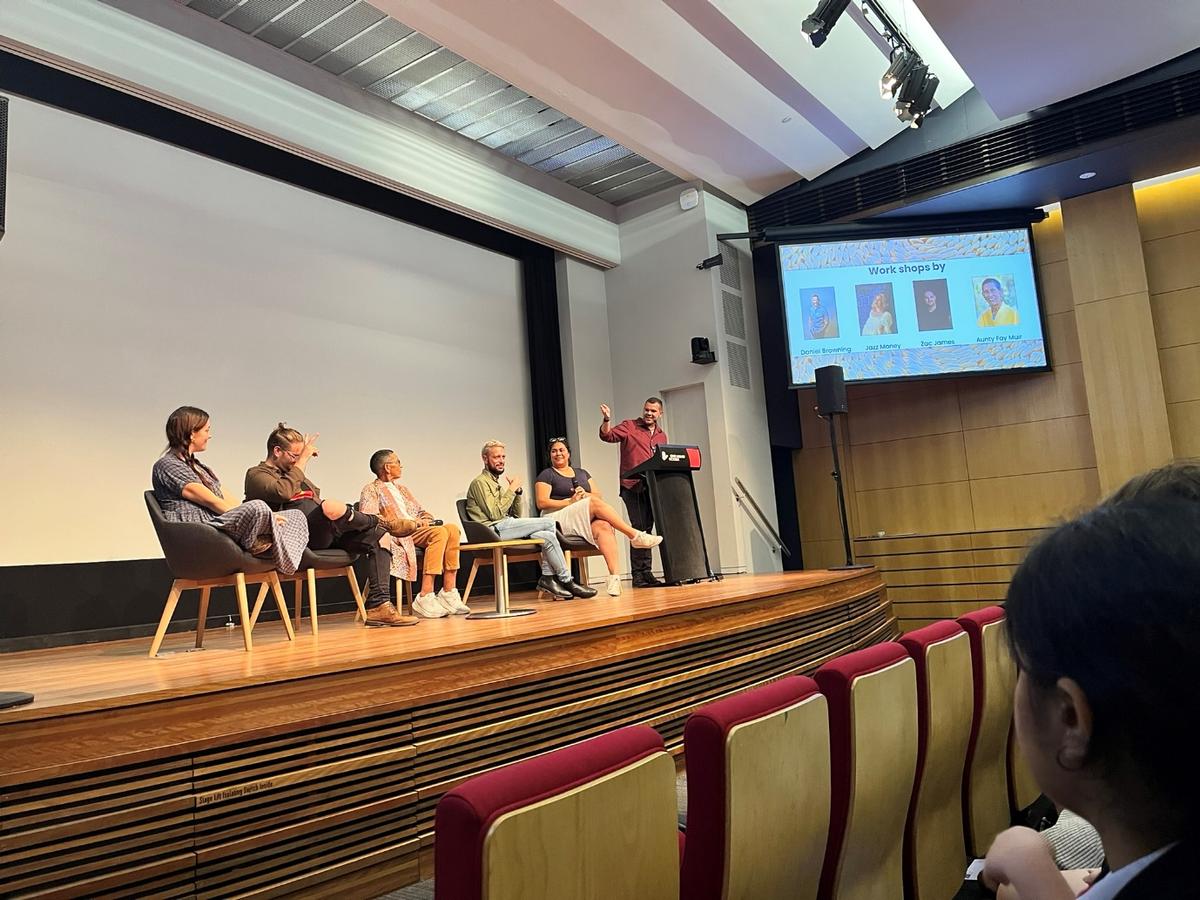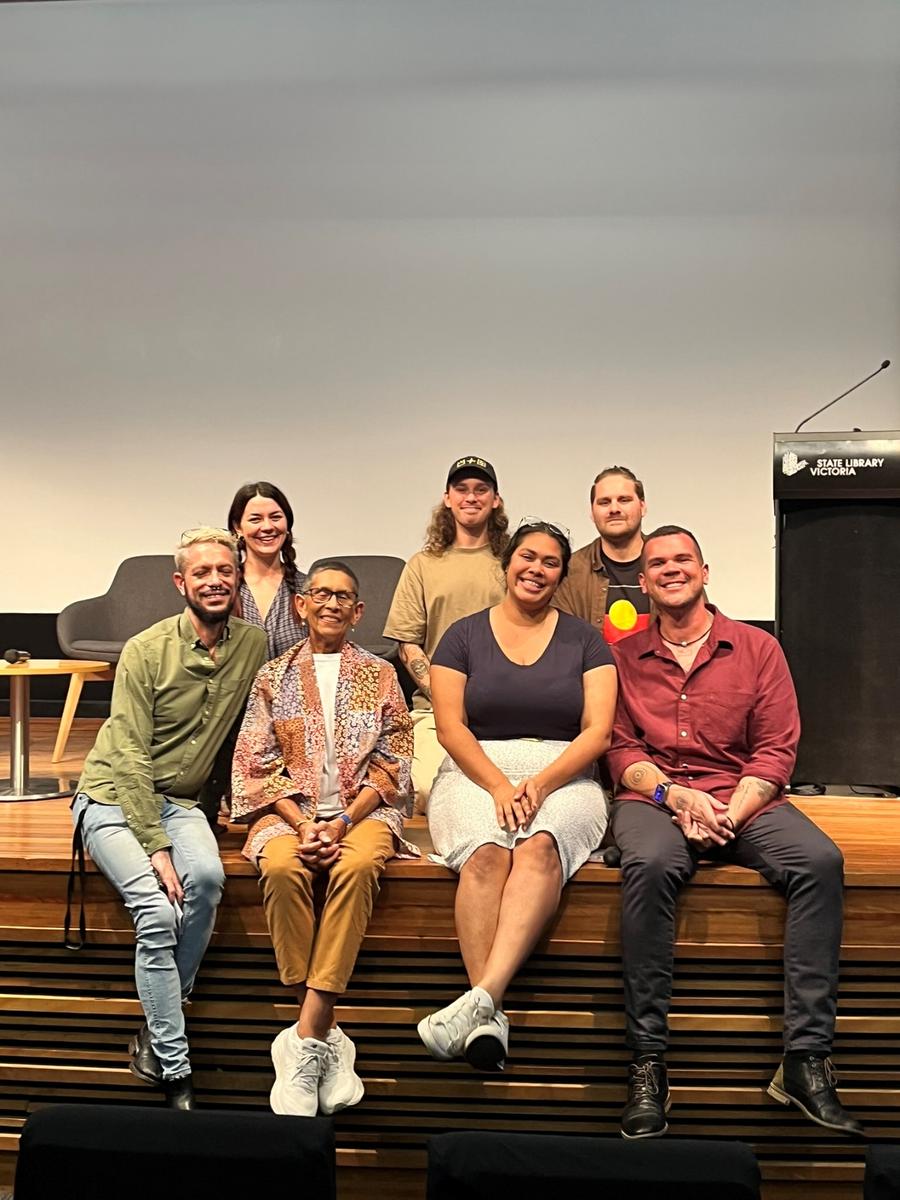Yarn Lab Excursion

YarnLab: A Cultural and Creative Experience
The Blak and Bright First Nations Literary Festival was established in 2016 by Jane Harrison, and it is based in Naarm (Melbourne). Blak and Bright serves as a showcase of First Nations literary voices, sharing the complex and emotional expression of indigenous storytellers with a wider audience.
Yarn Lab is a workshop designed by Blak and Bright and delivered in collaboration with the State Library of Victoria, bringing Blak stories into the classroom, offering new perspectives and opening the minds of high school students. The Unit 1 and 2 Literature class, and a representative of the Creative Writing Club, attended the workshops Friday 14 March under the guidance of Ms Tchantcho and Mr Rule.
Workshop 1 – Writing about Memory – With Aunty Fay Muir
Aunty Fay Muir is a mentor, author and educator who is a Boon Wurrung and Wamba Wamba elder, and we had the unique opportunity to attend a creative writing workshop with her presiding. Under her guidance, we wrote two pages about a personal experience that is important to us, and she ensured that we had an uninterrupted flow of words and ideas, which we later shared with the workshop. She reminded us of the power of connection to country, and spiritual connection with friends and family that sustain us through our years.
Aunty Fay also told us stories about her life growing up and how her life experiences impacted and influenced her work, and we were left with an eye-opening insight into Aunty Fay’s life and the creative process, particularly the power that telling stories can have to share culture with the next generation.
Workshop 2 – Writing Poetry – with Jazz Money
During the poetry workshop run by Jazz Money as part of the Yarn Lab excursion, Jazz walked students through a series of incredibly personal and therapeutic writing activities. All the activities were clearly curated to give the writers a result that was unique to themself, giving them the freedom to write almost whatever they wished to and, in a way, illustrating to them the inherent feeling of diversity and identity that the medium of poetry carries.
Jazz conducted all of activities absolutely masterfully, creating such a calm and inviting environment, while also allowing her to feel less like a ‘teacher’ and more so like a friend. It also allowed her to showcase her skill and experience in the field by introducing us to some of her amazing pieces from her poetry collection. She used writing prompts like visuals, an obsession list, musical atmospheric inspiration and a line from another poem.
Workshop 3 – Monologue Performance – with Theresa Moore and Bebe Oliver
Monologues played a significant role in shaping our understanding of the texts of Aboriginal and Indigenous people and what their perspectives are, as well as providing a deep insight into their thoughts, values and emotions. Through the phenomenal acting of Theresa Moore and Bebe Oliver, we had the honour of envisioning the monologues and appreciating the stories they told. Their emotive performances were an interesting blend of movement, an emphasis on certain words, and sound effects which added new dimensions to the performance.
Papa reflected upon the loss of cultural association and understanding that many Indigenous people felt when being distanced from their families, and how colonization had impacted them to such a large degree that they were not able to form that connection to roots and ancestors that they once did, with westernization playing that role of a barrier between past and present.
Stolen, which we are studying in Literature 1/2, was deeply thought provoking and shed light on the gruesome realities of intergenerational trauma that Aboriginal and Indigenous people faced due to the horrifying effects of colonization, especially the women who were subjected to various forms of abuse, torture and pain. It was presented to us through the lens of a child which really magnified the extent to which the intergenerational trauma has impacted the community as a whole from child to elderly.
The last Monologue delivered by Theresa Moore was called Silence is Violence. Although played initially in a light-hearted manner, it carried a very deep meaning behind it, scrutinizing all the unjust treatment the Indigenous people had to face where they broke the fear and terror, standing strong against discrimination and racial bias until emerging as a superpower and being proud of who they are.
Each Monologue had a unique way of portrayal however all of them shared one thing in common: the cultural identity and pride that they carried forward as they represented the voice of our Aboriginal and Indigenous people. This left an everlasting impact on us as an audience and inspired us to practice our culture and to learn as much as we can in our lives and always to pay respect to all cultures embracing harmony.
Gratitude for YarnLab
On behalf of Nossal High School, my fellow students and our teachers, I would like to thank the speakers for the wisdom and experience they have shared with us.
We enjoyed and were grateful for the opportunity to take part in the workshops run by Aunty Fay Muir, and Jazz Money, and gained insight from the words of Daniel Browning, and Zac James as they empowered us to consider oral storytelling and spirituality. Each mentor responded thoughtfully and insightfully to the questions asked during the Q&A, and we want to sincerely express our gratitude to each, and every person involved in Yarn Lab for taking the time to teach and encourage us throughout the day.
We are fortunate to have events like this hosted by the State Library and offered for free so that students can benefit from the wisdom of Indigenous voices and artists in a meaningful way.
By Aidan Sherry, Freya Harrison, Ananya Syal and Grisha Chernov
